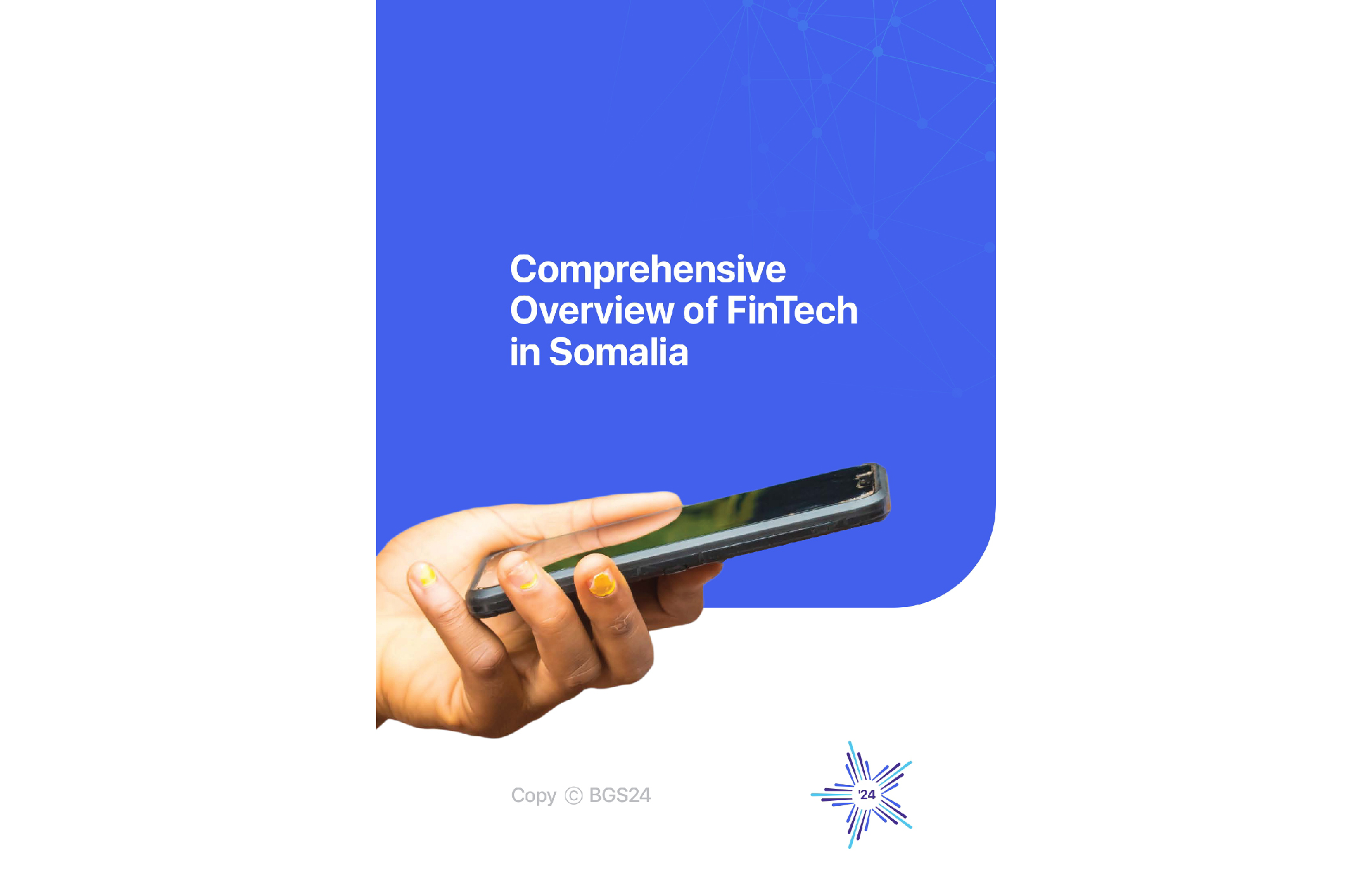
The financial technology (FinTech) sector in Somalia has emerged as a critical player in transforming the country’s financial landscape. With limited traditional banking infrastructure, particularly in rural areas, FinTech has stepped in to provide accessible financial services. This paper, titled “Comprehensive Overview of FinTech in Somalia,” aims to assess the current state of the FinTech sector, analyzing adoption trends, demographic characteristics, challenges, and prospects while highlighting its role in fostering financial inclusion. The research focuses on the rapid growth of mobile money platforms, which are driven by widespread adoption among Somalia’s tech-savvy, youthful population. The study examines FinTech adoption in Somalia, analyzing key trends in user demographics, motivations for using FinTech, usage patterns, and barriers to adoption. The research also evaluates challenges to sector growth, including infrastructure gaps, regulatory issues, and socio-cultural factors influencing adoption. This study utilized a mixed-method approach, combining quantitative survey data with qualitative analysis to comprehensively understand FinTech usage in Somalia. Data was collected from 516 respondents, focusing on user demographics, educational background, occupational status, familiarity with FinTech services, and satisfaction levels. The survey data was complemented by analyzing secondary sources on the regulatory environment, mobile money platforms, and broader FinTech trends. Most (85%) of users are between 18 and 34 years old, reflecting a global trend of younger generations adopting digital platforms. However, there is a gender disparity, with 82% of users being male, highlighting potential socio-cultural barriers to female adoption. Over 87% of users hold a bachelor’s or master’s degree, indicating a correlation between educational attainment and FinTech usage. Occupational status shows that FinTech services are used across diverse segments, with 41.3% of users employed full-time and 30% being students. Around 70% of respondents reported high familiarity with FinTech services, and 94% currently use them, primarily mobile money platforms. Mobile money is the most popular, with over 85% of users relying on them for financial transactions. The primary barriers to further Fintech development in Somalia include lack of customer support (38.3%), internet connectivity issues (33.5%), and limited service availability (26.7%). High transaction fees and regulatory uncertainty also hinder broader Comprehensive Overview of FinTech in Somalia 01 adoption. Despite these challenges, over 65.5% of respondents expect substantial sector growth, particularly in mobile money, e-commerce, and financial education. Notably, 58% of users expressed high satisfaction with current services, indicating the sector’s success and potential for further growth. The findings suggest that Somalia’s FinTech sector has significant potential to contribute to financial inclusion, particularly in underserved rural areas. Mobile money platforms are already playing a transformative role, and with suitable investments in infrastructure and regulatory frameworks, the sector could continue to grow. There is also a need to address gender disparities and increase female participation in FinTech to foster a more inclusive financial ecosystem. The study’s limitations include potential biases in the survey data due to an overrepresentation of younger and more educated respondents and urban areas with more reliable internet connectivity. The study also focuses primarily on mobile money platforms, which, while dominant, may not fully capture the broader spectrum of FinTech services emerging in Somalia. The study provides a comprehensive overview of Somalia’s FinTech landscape, highlighting key trends in adoption, challenges, and opportunities for growth. The sector is driven primarily by young, educated users who rely on mobile money platforms for their financial transactions. However, significant challenges related to customer support, internet connectivity, and regulatory frameworks must be addressed to ensure the sector’s continued growth. Additionally, increasing female participation and diversifying FinTech services could foster a more inclusive and resilient financial ecosystem. The positive outlook expressed by users underscores the potential of FinTech to play a transformative role in Somalia’s financial inclusion and economic development efforts.

